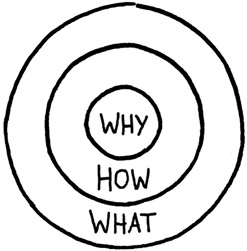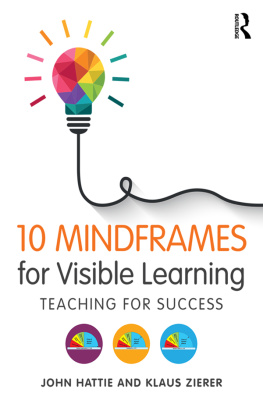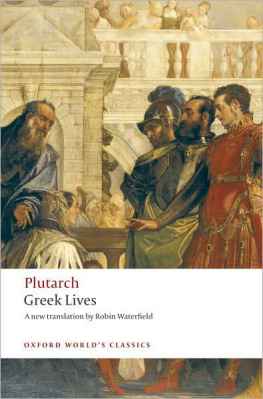First published 2018
by Routledge
2 Park Square, Milton Park, Abingdon, Oxon OX14 4RN
and by Routledge
711 Third Avenue, New York, NY 10017
Routledge is an imprint of the Taylor & Francis Group, an informa business
2018 John Hattie and Klaus Zierer
The right of John Hattie and Klaus Zierer to be identified as authors of this work has been asserted by them in accordance with sections 77 and 78 of the Copyright, Designs and Patents Act 1988.
All rights reserved. No part of this book may be reprinted or reproduced or utilised in any form or by any electronic, mechanical, or other means, now known or hereafter invented, including photocopying and recording, or in any information storage or retrieval system, without permission in writing from the publishers.
Trademark notice: Product or corporate names may be trademarks or registered trademarks, and are used only for identification and explanation without intent to infringe.
British Library Cataloguing-in-Publication Data
A catalogue record for this book is available from the British Library
Library of Congress Cataloging-in-Publication Data
A catalog record for this book has been requested
ISBN: 978-1-138-63551-7 (hbk)
ISBN: 978-1-138-63552-4 (pbk)
ISBN: 978-1-315-20638-7 (ebk)
Typeset in Bembo and Helvetica Neue
by Apex CoVantage, LLC

15,000 hours with 50 teachers
We all spend around 15,000 hours of our lives at school (cf. Rutter et al., 1980) and are taught by roughly 50 different teachers in this time. When we try to remember these teachers who had a positive impact on us, we can often recall only a few. Some were good, and some were bad. In both cases, we sometimes remember their names and perhaps their clothing or a few of their typical mannerisms. Although we can count the teachers who changed us on the fingers of one hand, we would perhaps need to grow a few extra hands to count the latter in the same way. Be that as it may, the good news about this memory is that almost every one of us did end up having a good teacher or two. The bad news is that the vast majority of the teachers we had in school have been erased from our memory entirely. We know neither their names nor the subject they taught nor anything else.
How can it be that some teachers succeed in remaining in our memory for years or even decades, whereas others fade into oblivion after just a brief period of time?
Let us take a closer look at our memories of good teachers: What do you recollect when you think about them? When we surveyed many adults with this question, there were two major answers: they recalled the teachers who tried to turn you onto the teachers passion, or they recalled the teachers who saw something in you that you may not have seen in yourself, or both. It was their ways of thinking, their ways of supporting, their ways of challenging, and their ways of passion that you are most likely to recall. It is unlikely to be because they taught a particular subject or were friendly or not, but because they had an impact on you.
This book is about just these teachers, the ones who have remained in our memories in a positive light over the course of years or even decades. They were teachers who had a major impact on our learning and on our education and oftentimes the effect of this impact is still with us today. The main focus in this book is on taking a closer look at the core notions of why they had this impact.
Simon Sinek and the Golden Circle
There are clear parallels between educational expertise and successful leadership. The task in both cases is to challenge and encourage people to the greatest possible extent in their development, in their thinking, and in their actions. In 2009, the American motivator and writer Simon Sinek held a TED Talk titled How Great Leaders Inspire Action. This talk gave rise to global discussions within a short period of time and is still the third most viewed film on TED. com today with more than 20 million views in the past six years. Shortly afterwards, Simon Sinek published the book Start with Why (2009), in which he fleshed out the idea first expounded in his talk.
At first glance, his idea seems too simple to be true: How are three concentric circles labeled with the words what, how, and why supposed to explain success? Only upon closer examination do the connections these circles represent prove to be helpful in describing successful leadership. And they can also help us to better understand educational expertise.
Simon Sinek argues that leadership can be considered from three different perspectives: First, it can be seen from the perspective of what successful leaders do. Second, we can take the approach of asking how leaders do what they do. And third, we can ask ourselves why leaders do what they do. To illustrate this concept, Simon Sinek uses the drawing found in , which he calls the Golden Circle (cf. Sinek, 2009).
The main message of Simon Sineks concept is that average leaders start and finish their thinking at the outermost circle. They ask themselves what they are doing and usually do not think any further. And so, they fail to consider the much more important questions ofhow and why they are doing what they are doing. In this way, average leaders often lose sight of their actual goal and thus also fail at their main task; namely, that of challenging and encouraging people to the greatest possible extent in their development, in their thinking, and in their actions. The response in those following the leader is a hollow, mechanical reaction to external stimuli; they are incapable of acting out of an inner conviction. They just do the job, take the actions, and run their schools irrespective of the impact on their students.

The Golden Circle
Successful leaders take a different approach. For them, the main question is why something should be done. This leads them to the question of how to do something and finally to that of what to do. Simon Sinek brings his argument to the point with the following statement: The important thing for successful leaders is not what they do; much more important is how and why they do what they do. Hence, he sees the secret of success in beginning with the inner circle and the question of why and then continuing outward from there by asking the questions of how and what. Simon Sinek presents three examples to illustrate his concept: Apple, Martin Luther King Jr, and the Wright brothers.
What is the secret of Apples success? It surely has nothing to do with what Apple does: Apple makes computers, tablets, and cell phones as do many other companies. Besides, if we take a closer look at these devices, we have to admit that they are not much better than those of the competition a smartphone that bends in your pocket might be a unique feature but certainly not in a positive sense. Neither can it have anything to do with how Apple does what it does. Rather, if we take a detailed look at the companys record on this point we see exactly the opposite: low wages, high environmental impact, and poor working conditions. Thus, the secret of Apples success must lie in the question of why: People who buy an Apple product today do not get just a technical device. They also get a personal philosophy, a way of life, and a passion to boot. Apple stands for the feeling of living a better life.
Why is Martin Luther King Jr among the most well-known and influential leaders of the African American civil rights movement? Surely not just because of what he did. He was not the only humanist of his time, and his ideas were the ideas of a larger group of activists. Neither does it lie in how he did what he did. He was doubtlessly a brilliant and passionate orator, but even that was not the key thing that set him apart from his fellow activists. It is thus necessary to look for the reason for the success of Martin Luther King Jr elsewhere: Why did he do what he did? The 250,000 people who participated in the March on Washington on August 28, 1963, had not received an invitation. They came because they believed in Martin Luther King Jr less in what he said or in how he said it than in why he said it. Martin Luther King Jr had a vision of why he was doing what he was doing. I have a dream are his immortal words not I have a plan. The people who heard Martin Luther King Jr on this day were deeply moved, shared the same values, and had a common vision. They all believed that this day would change everything.















